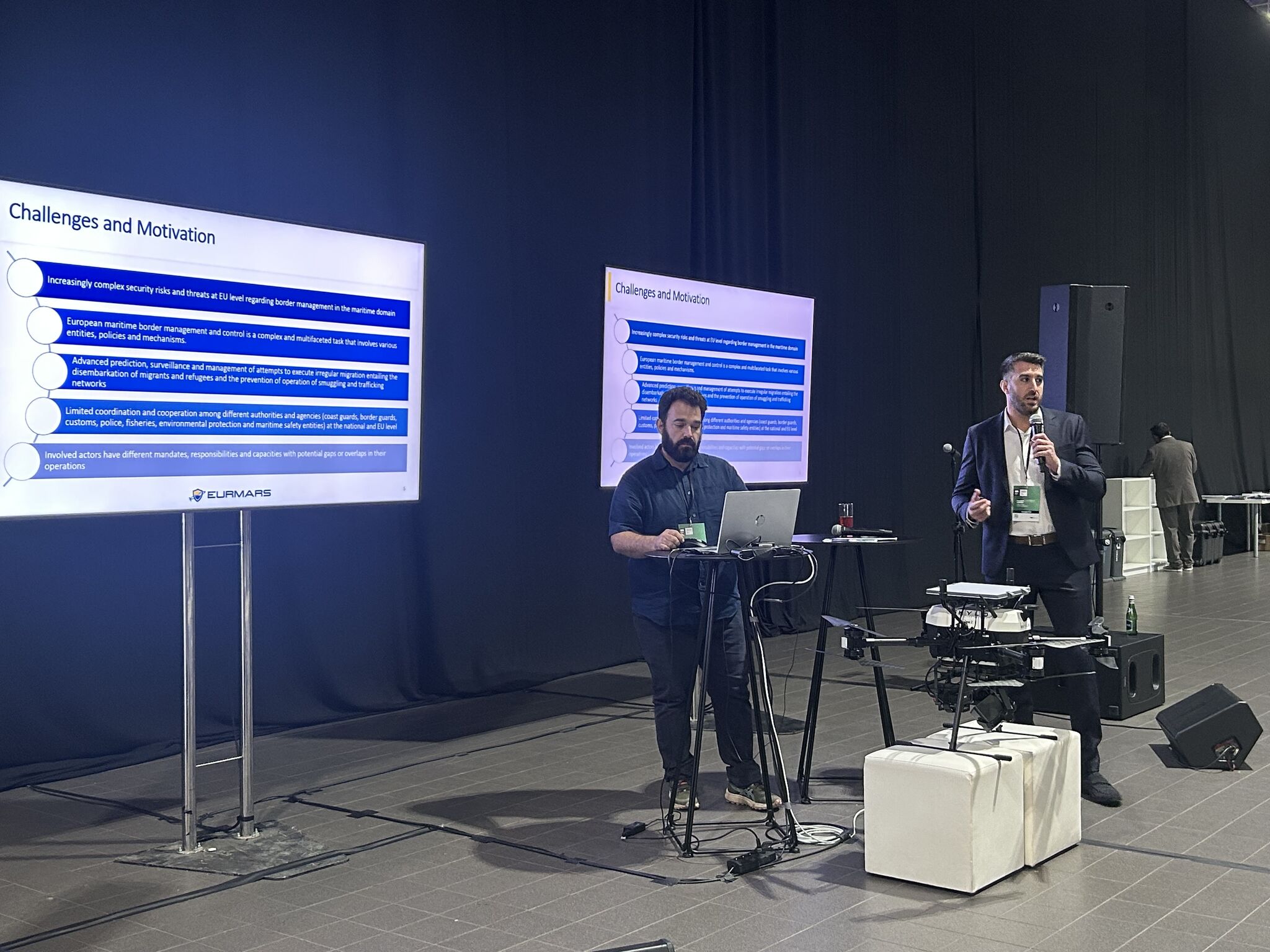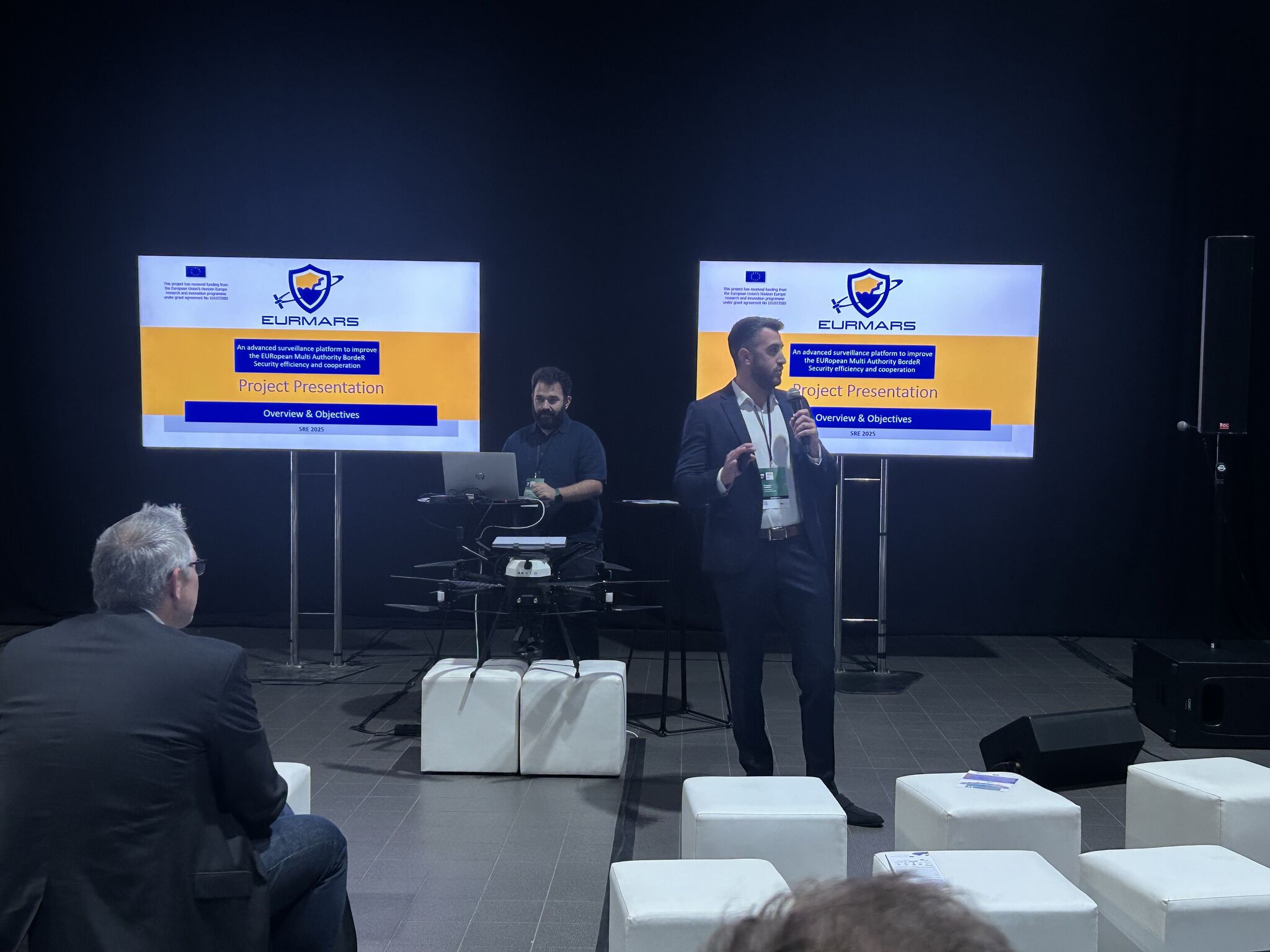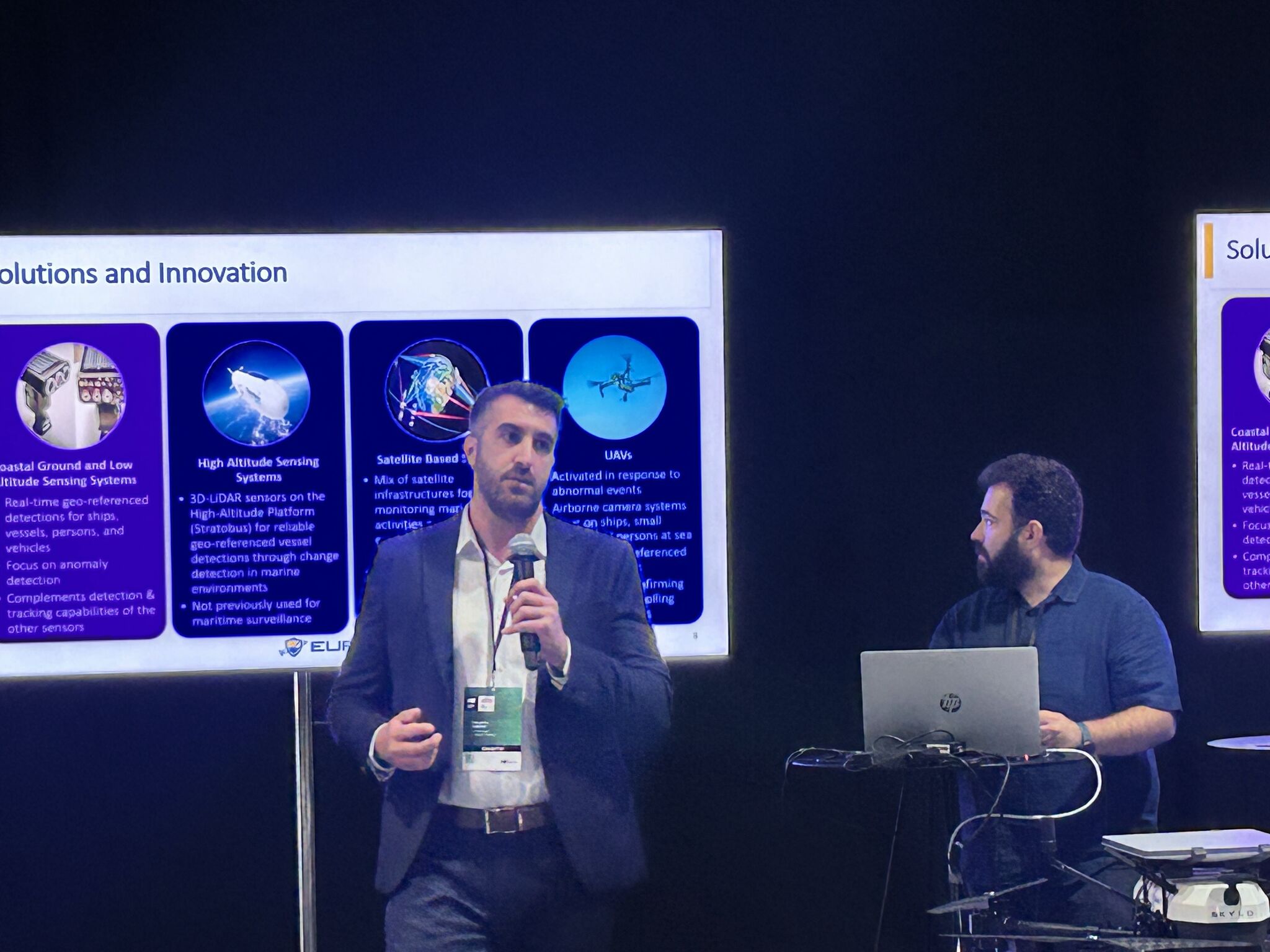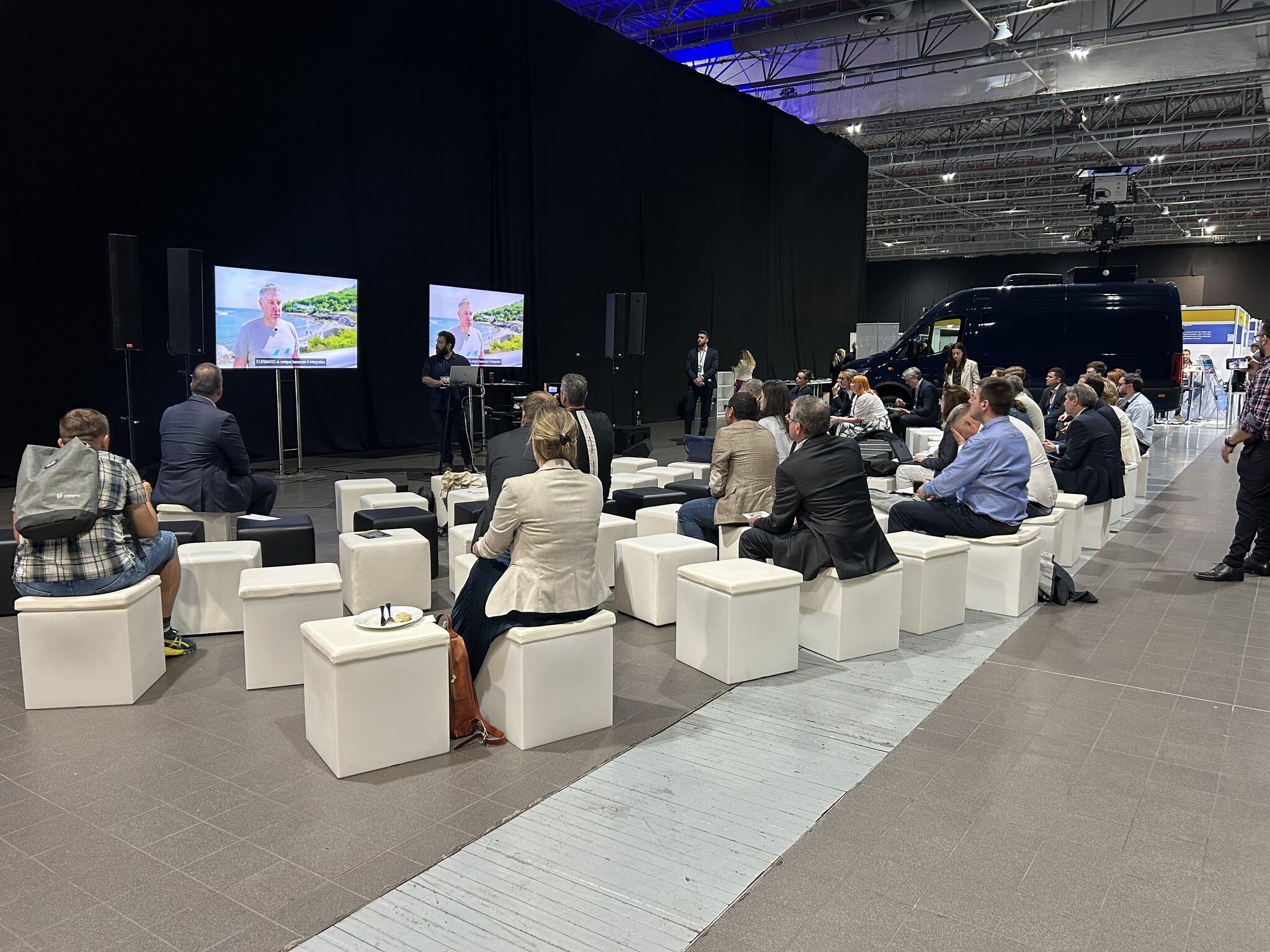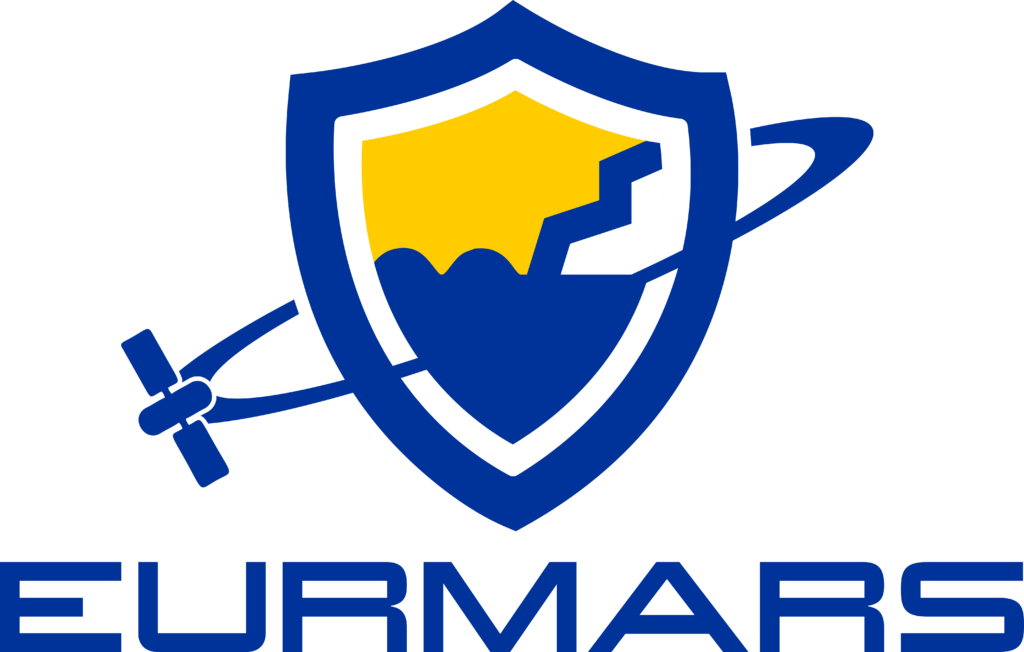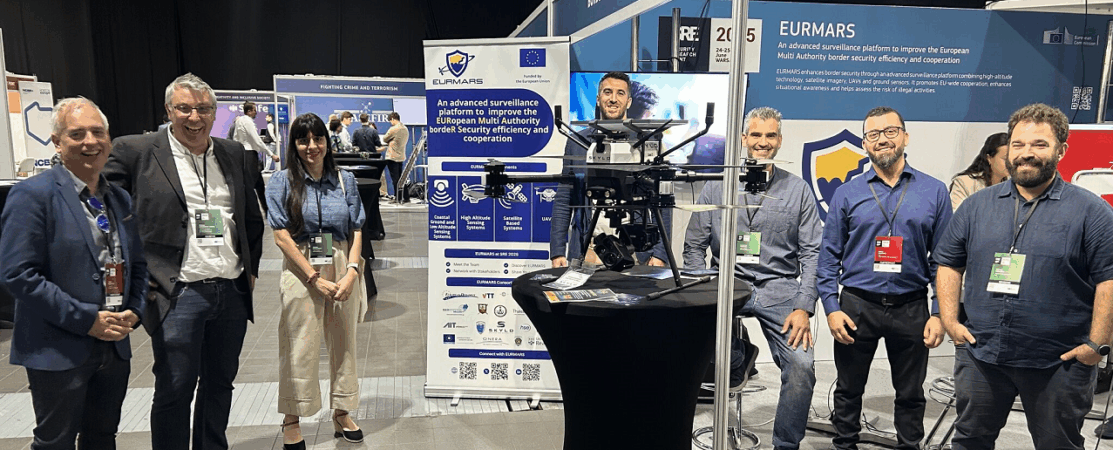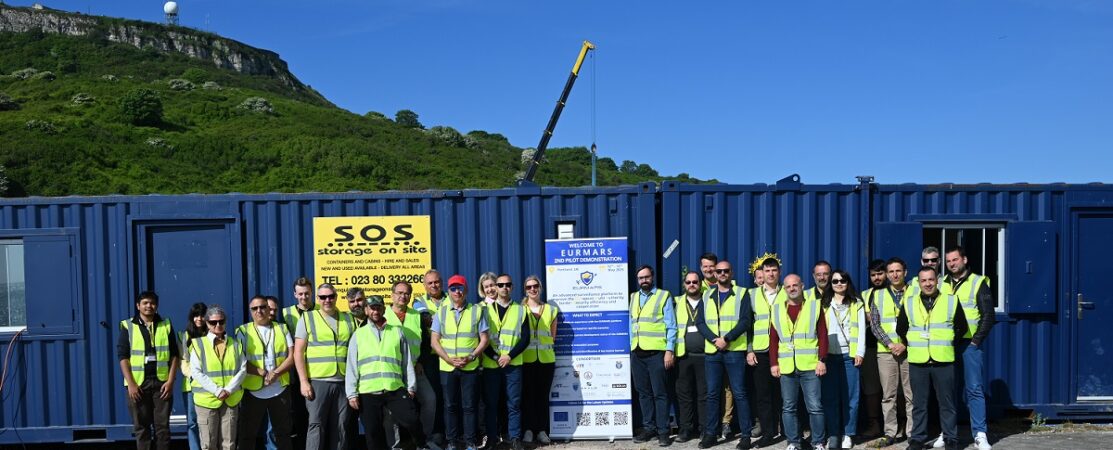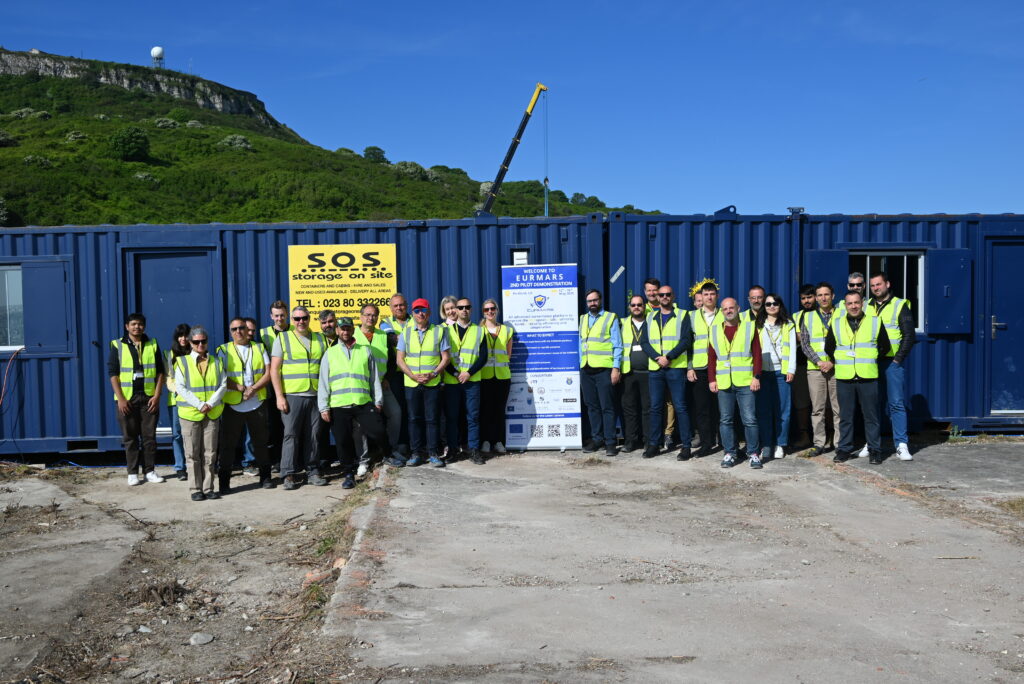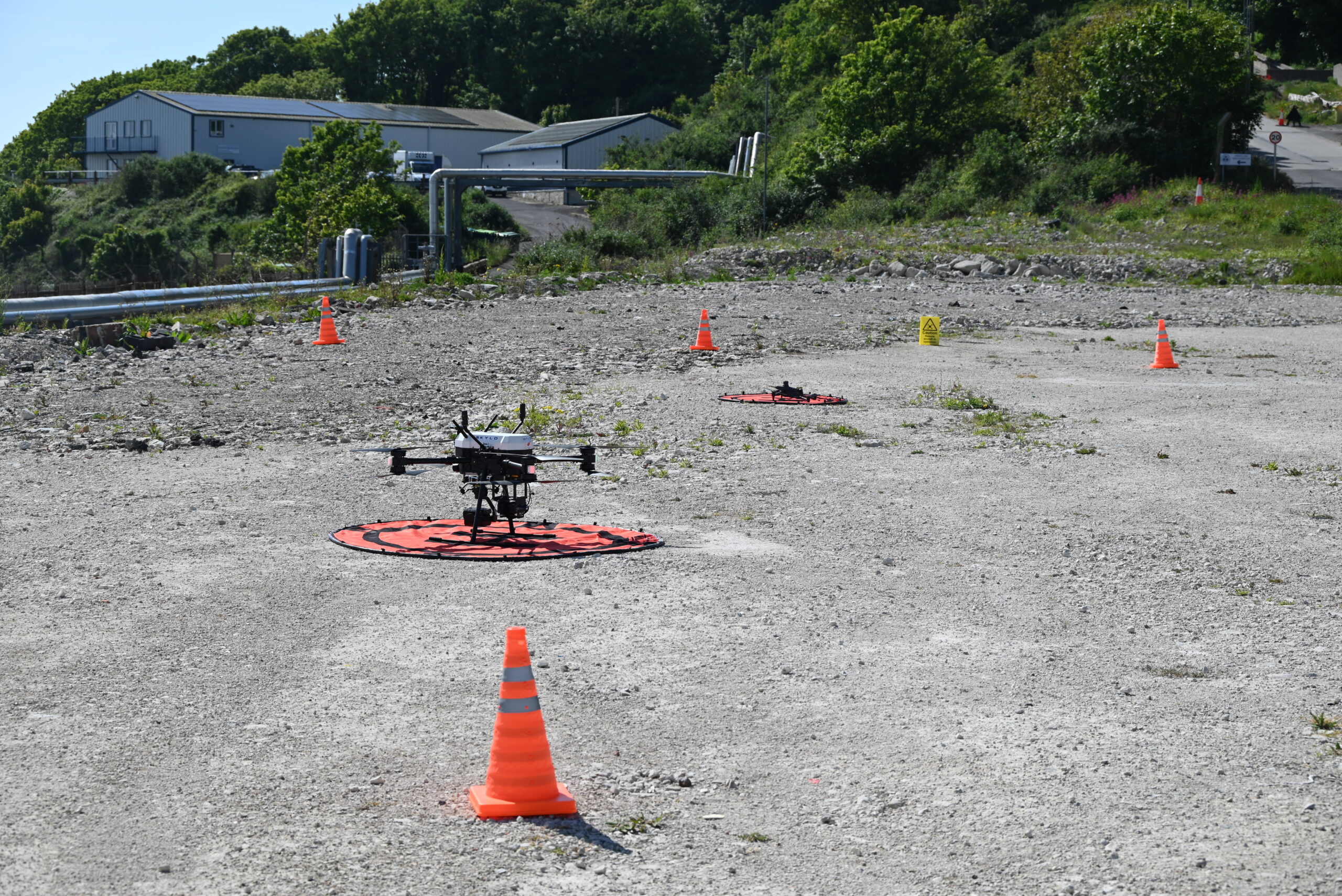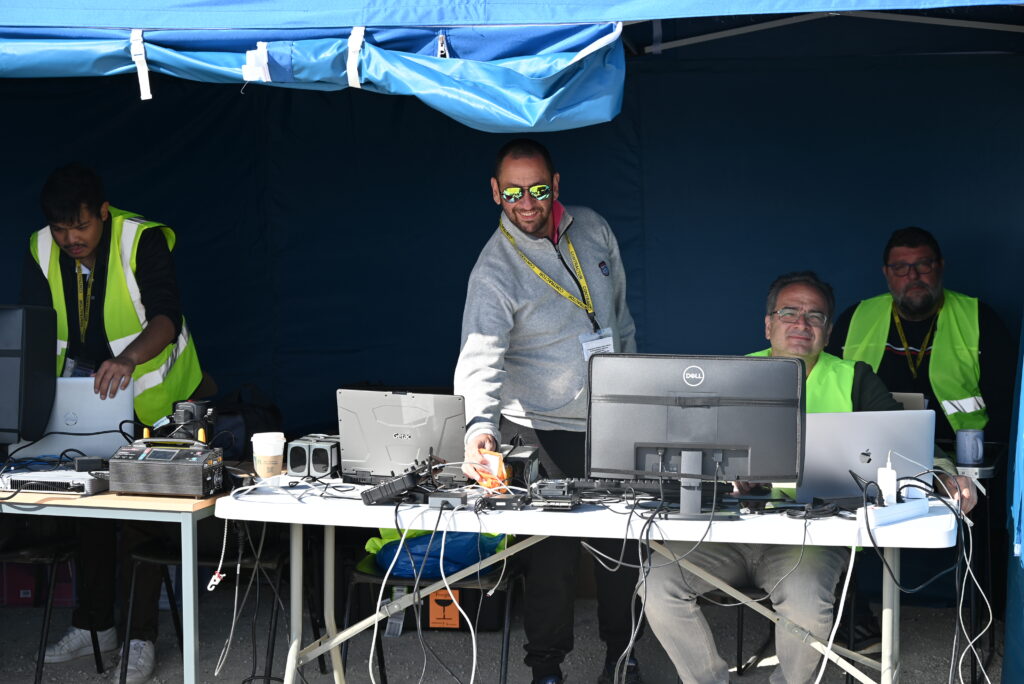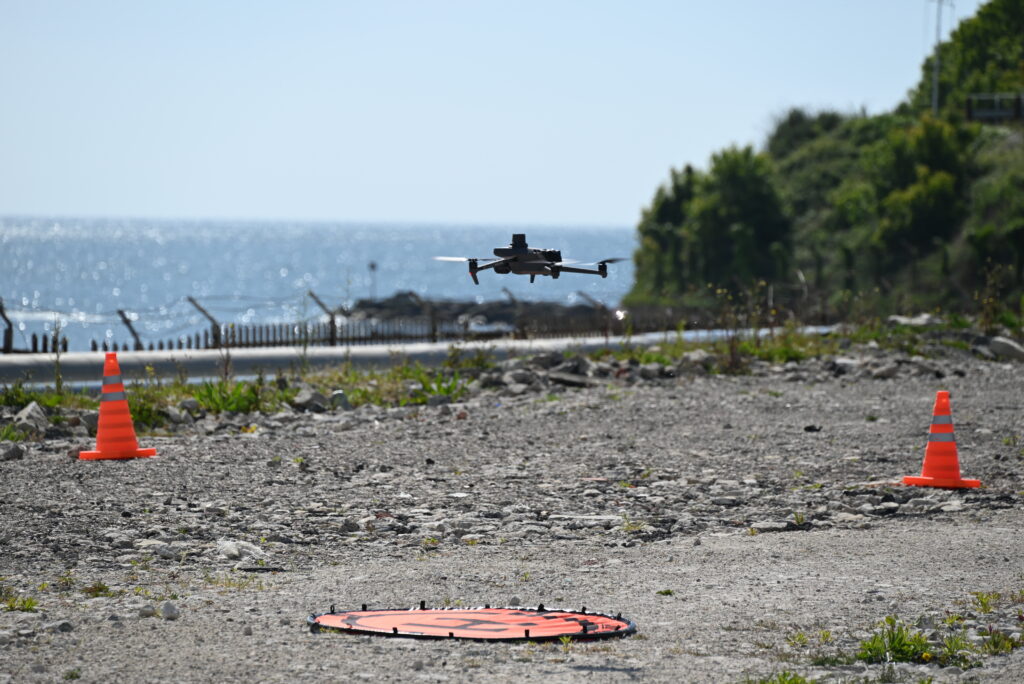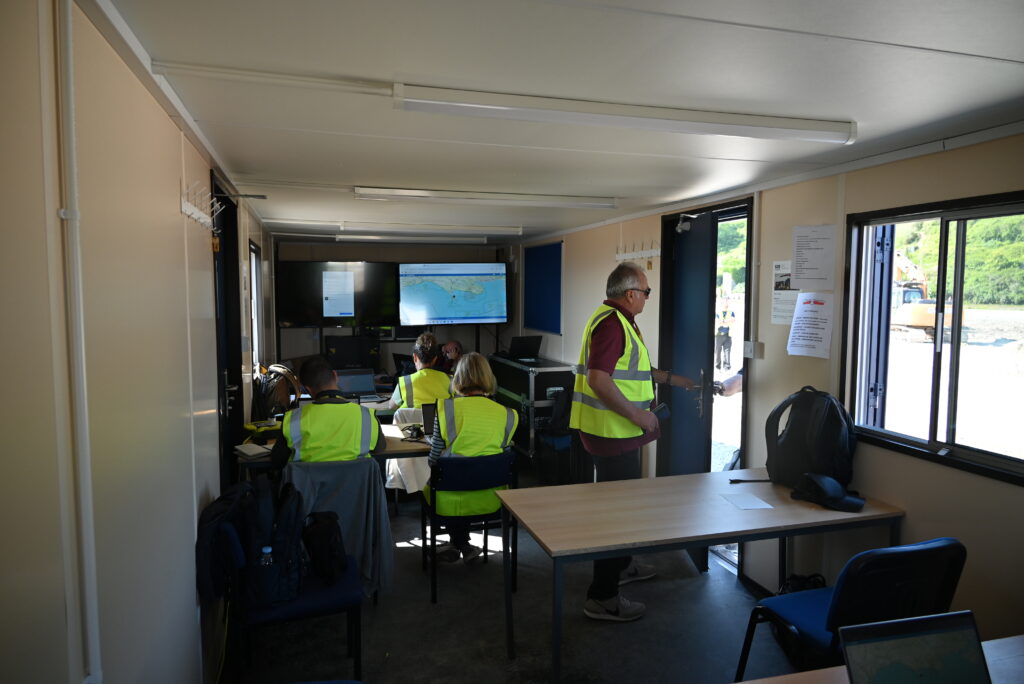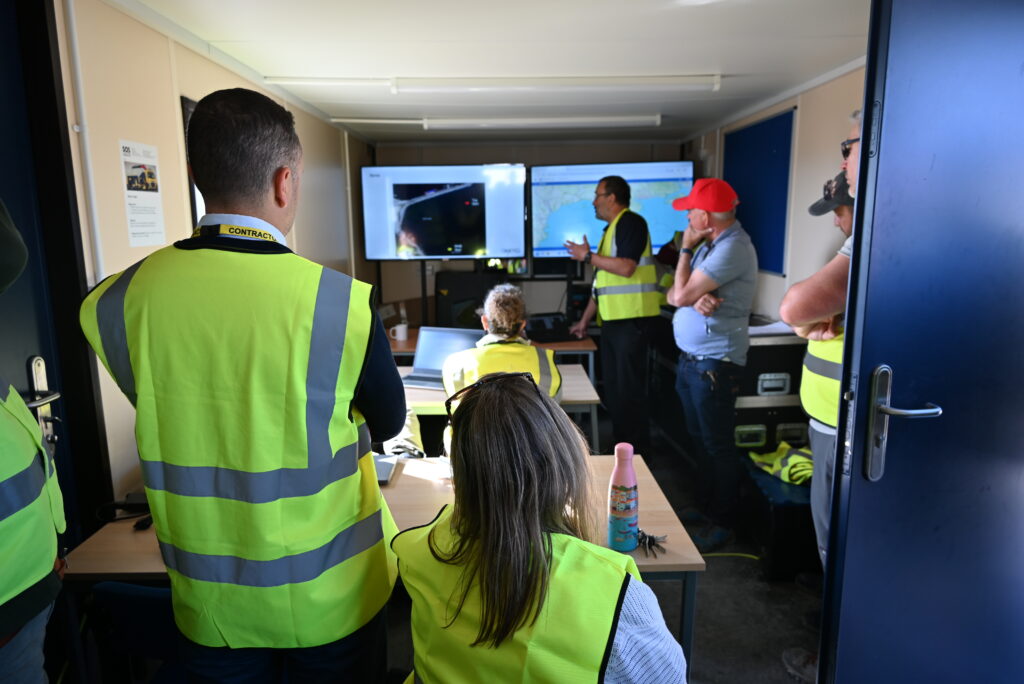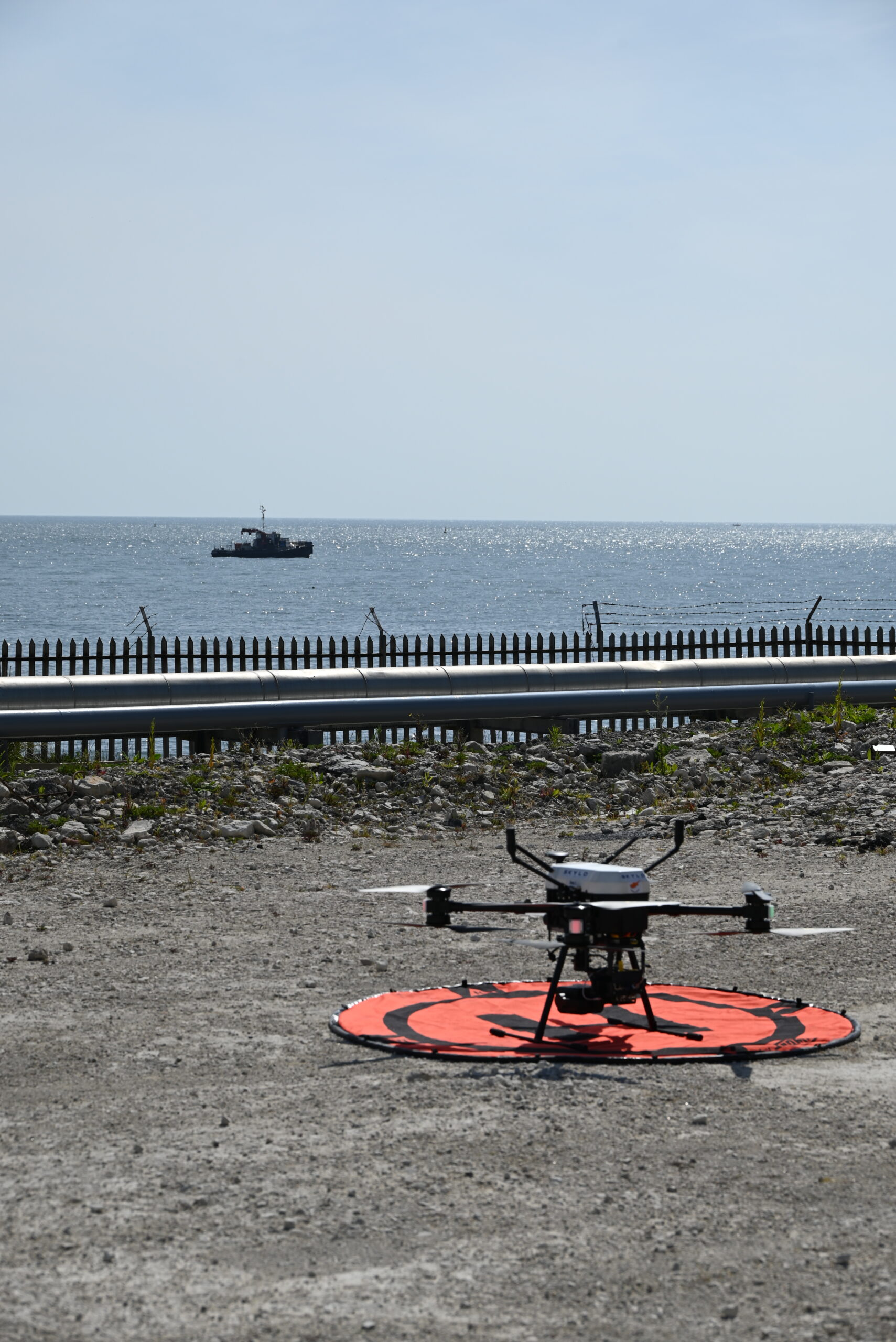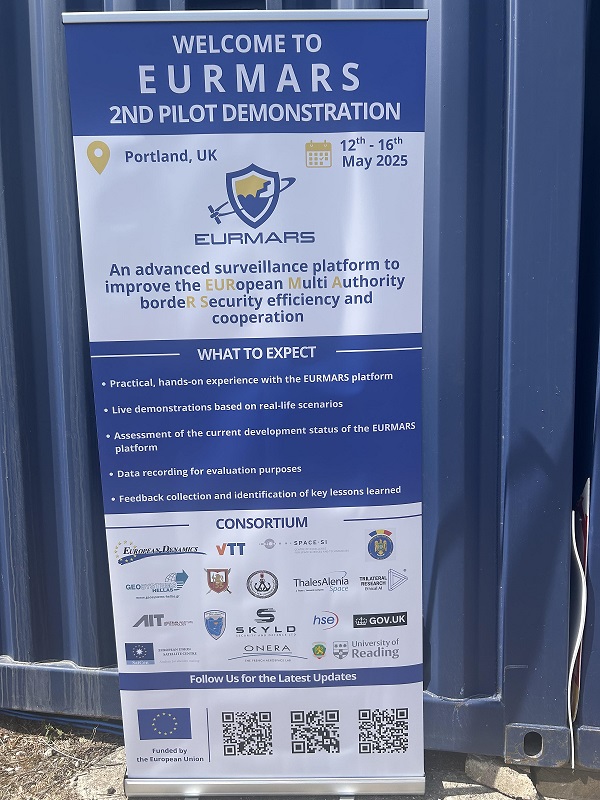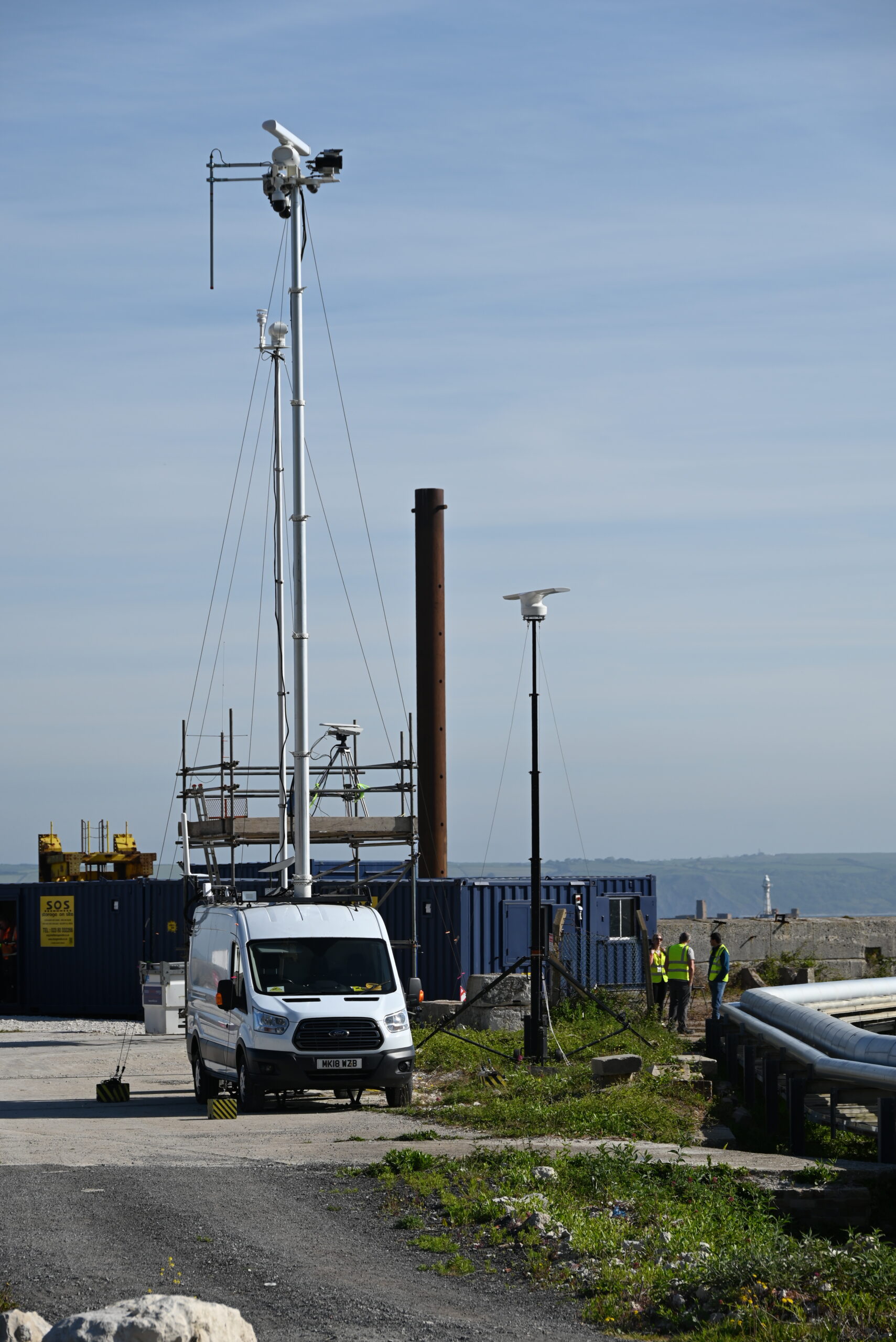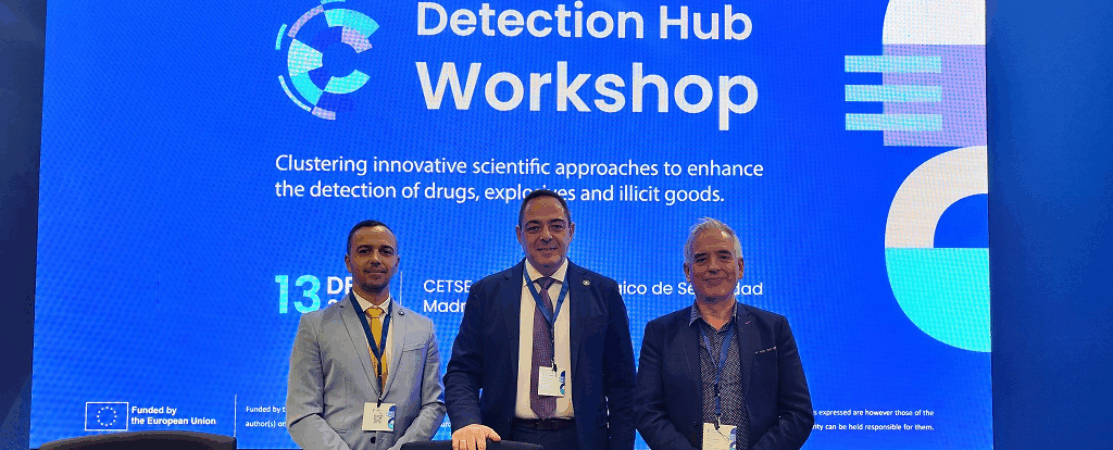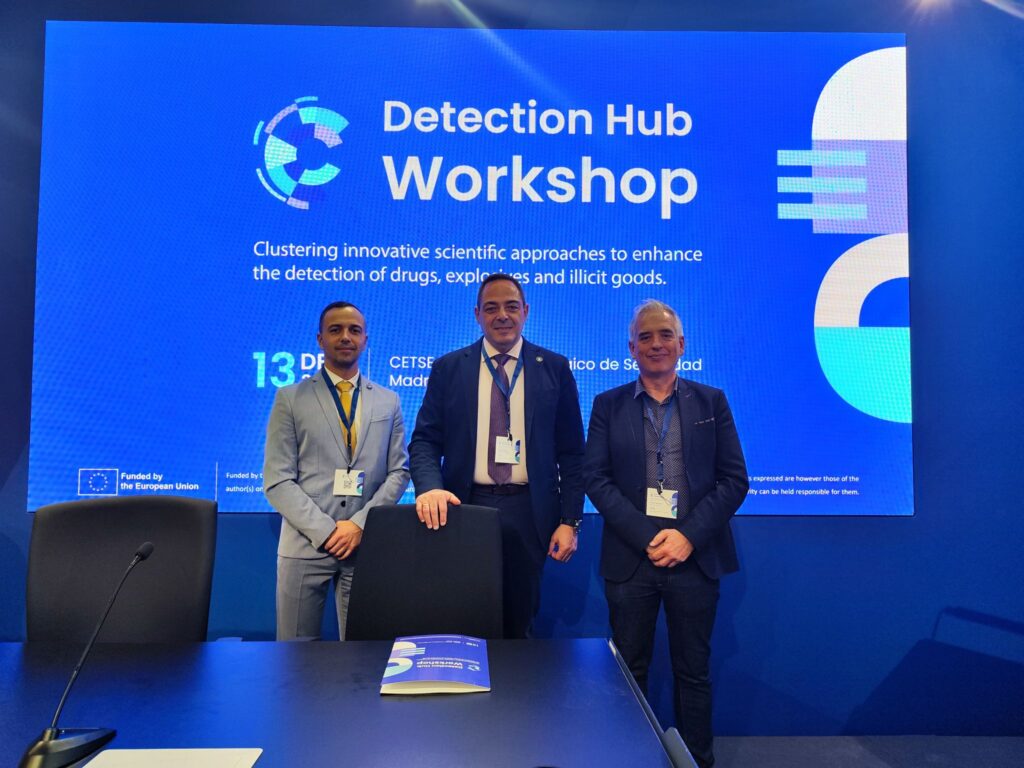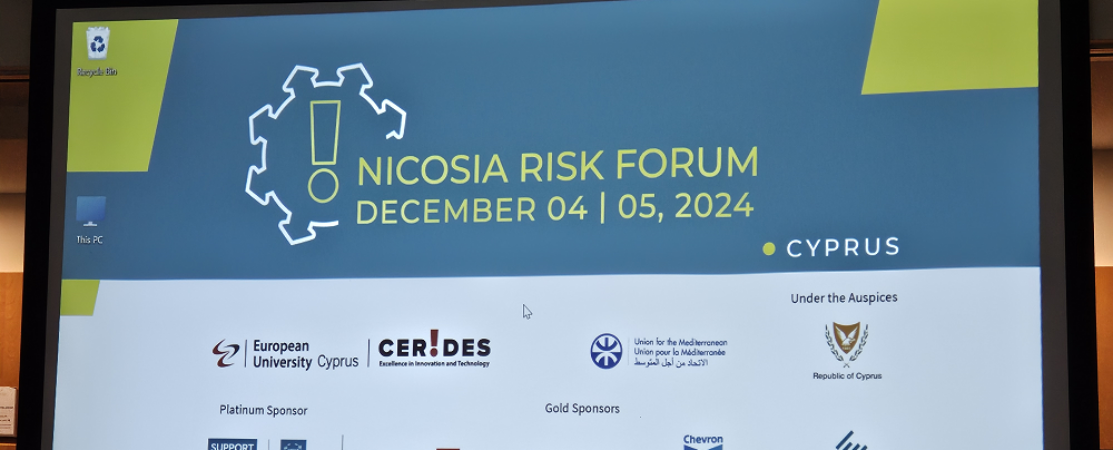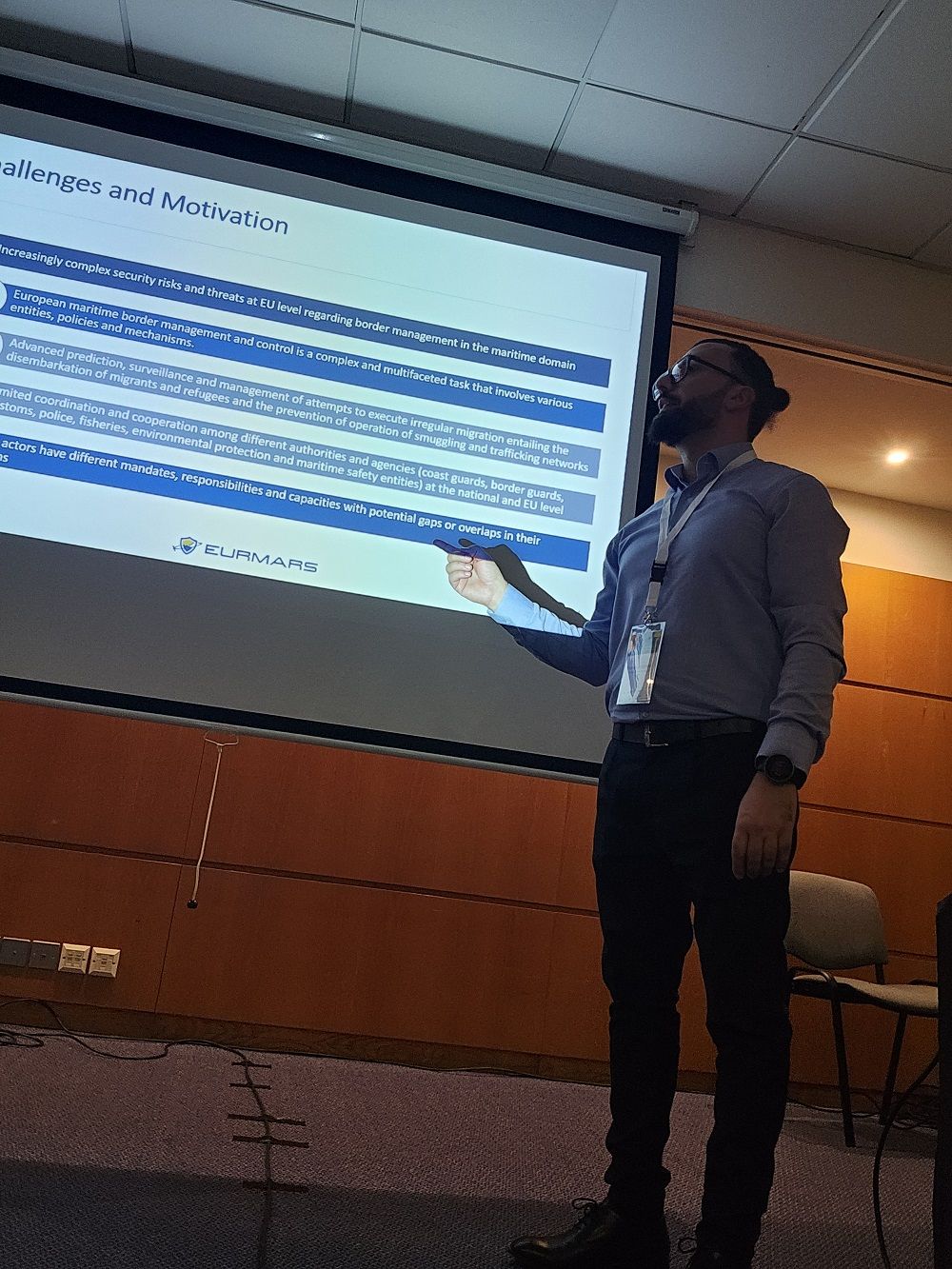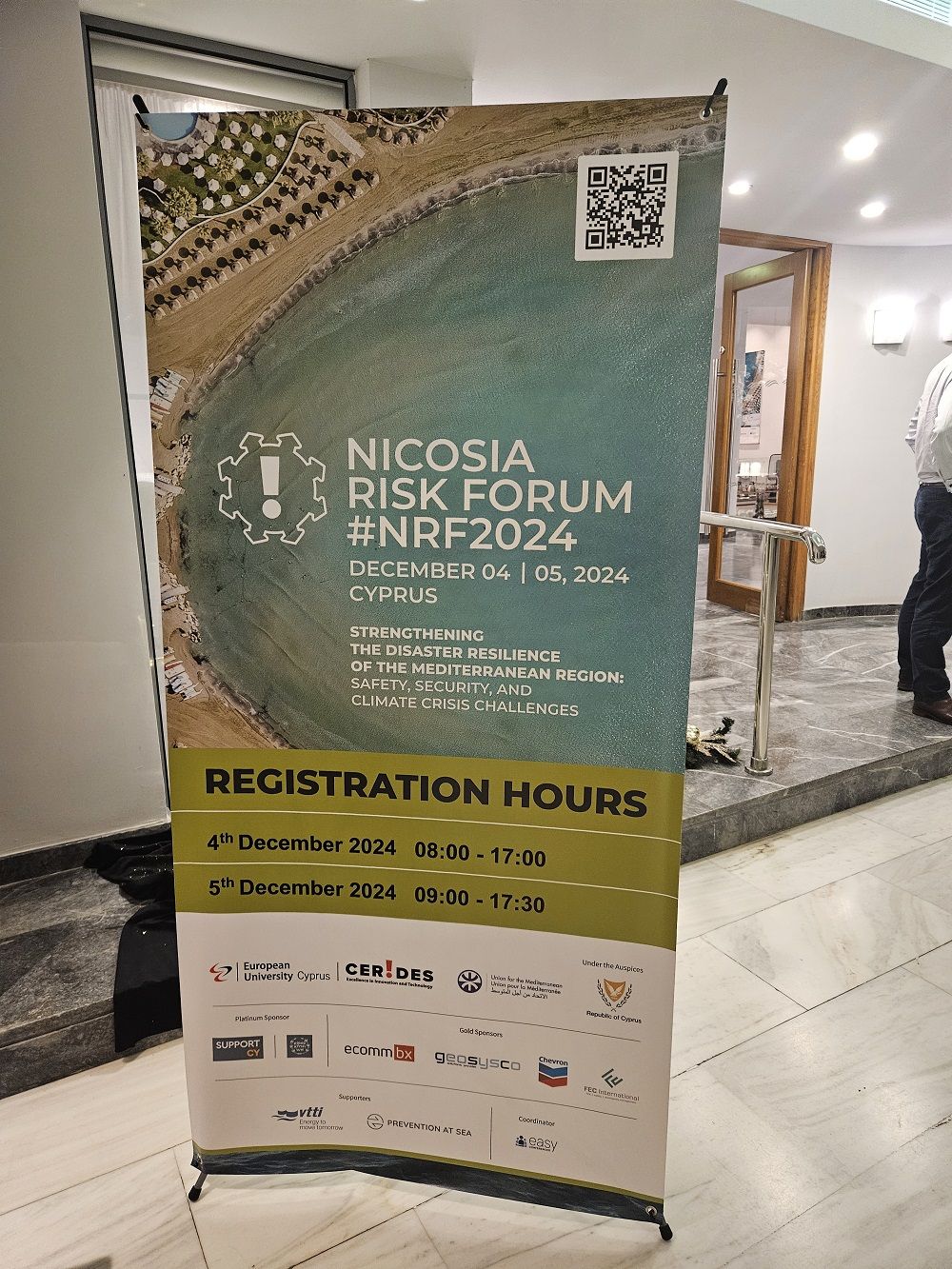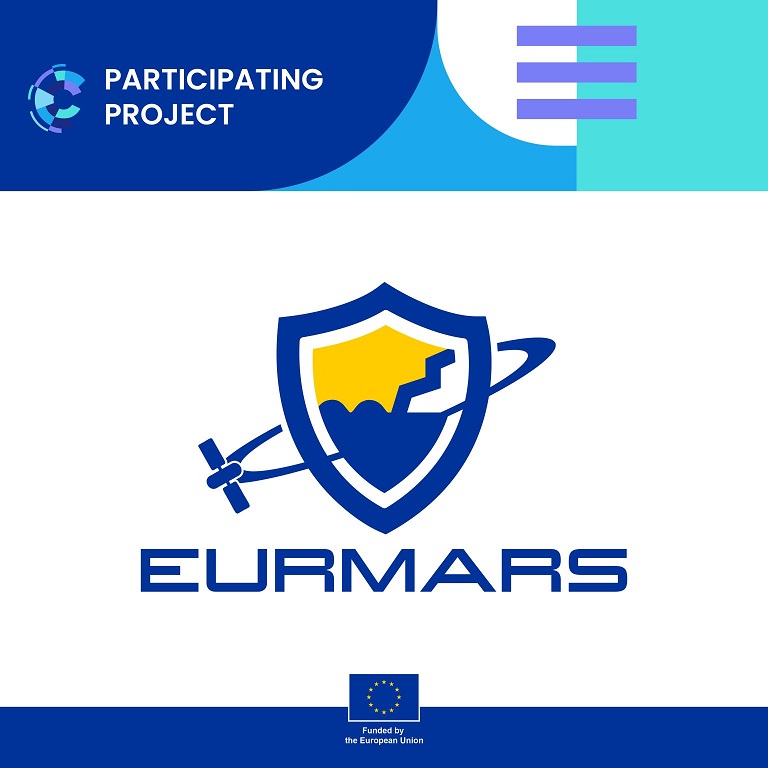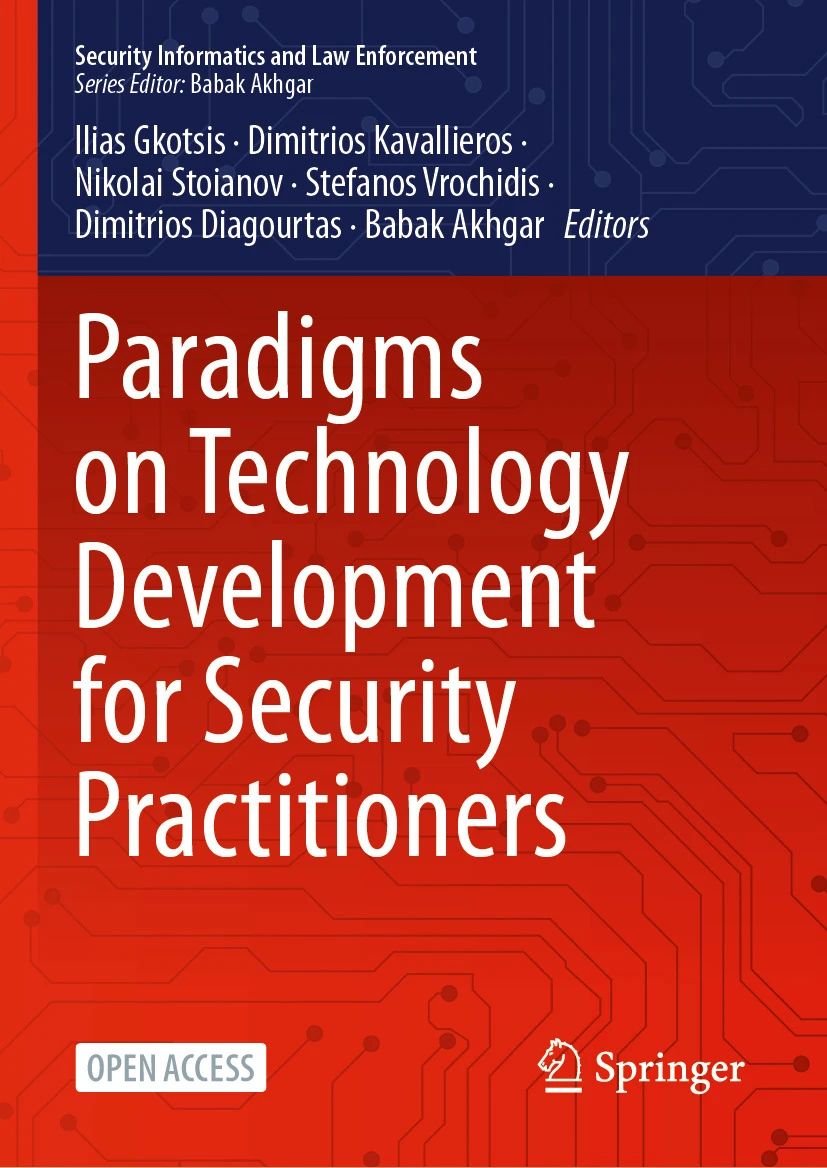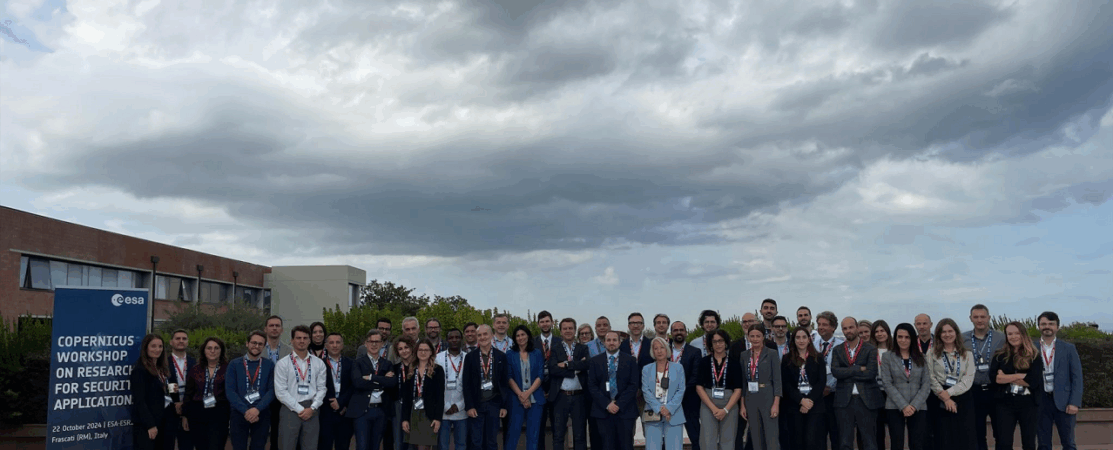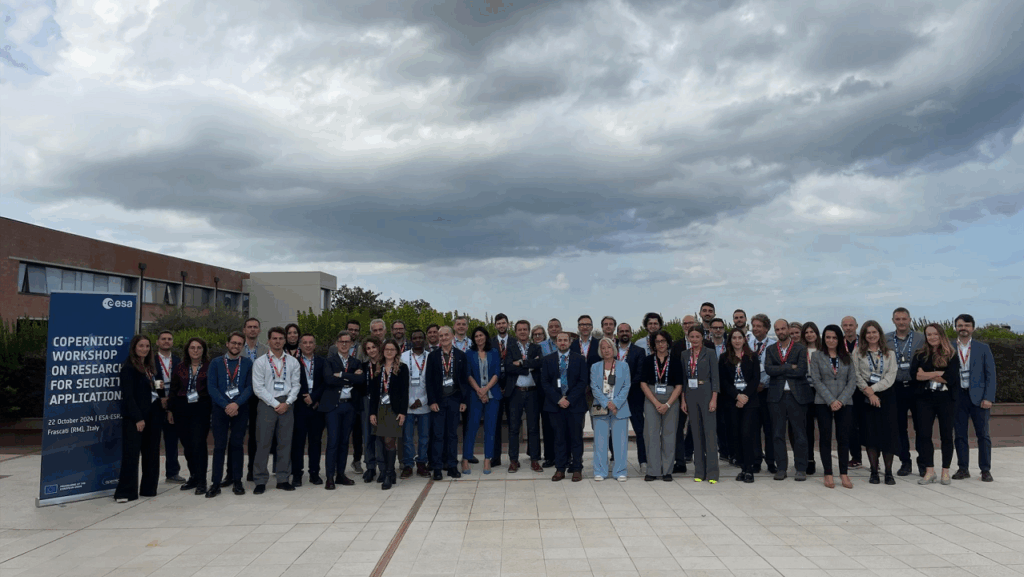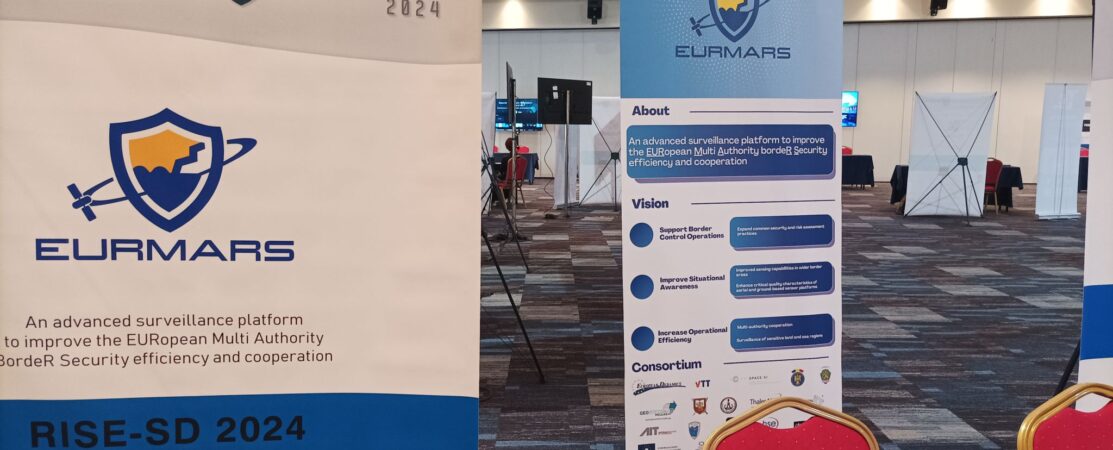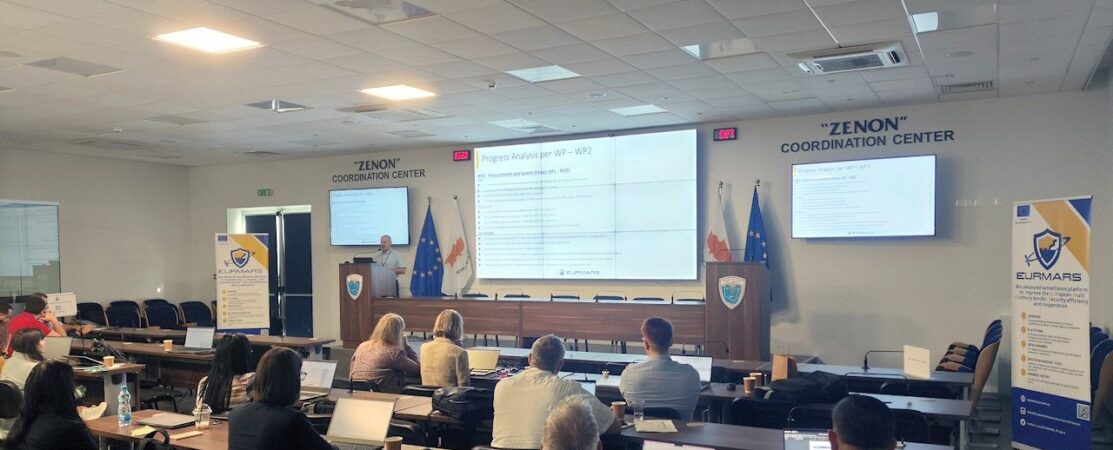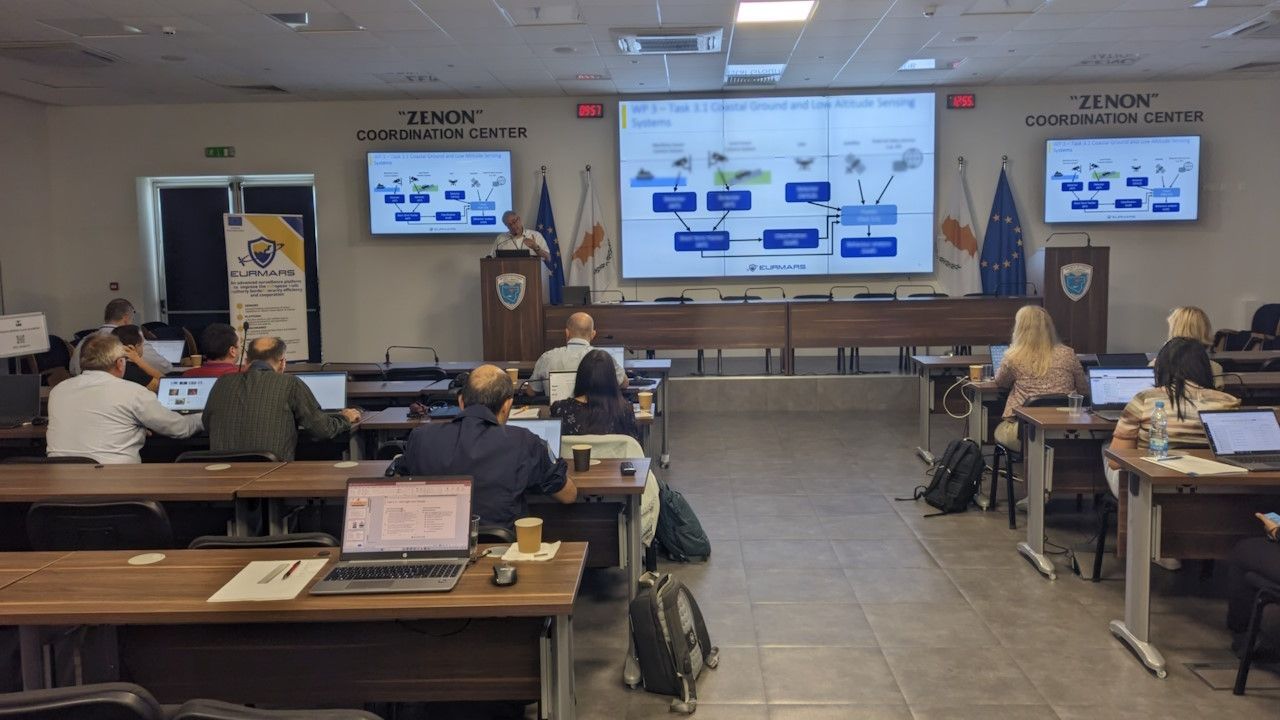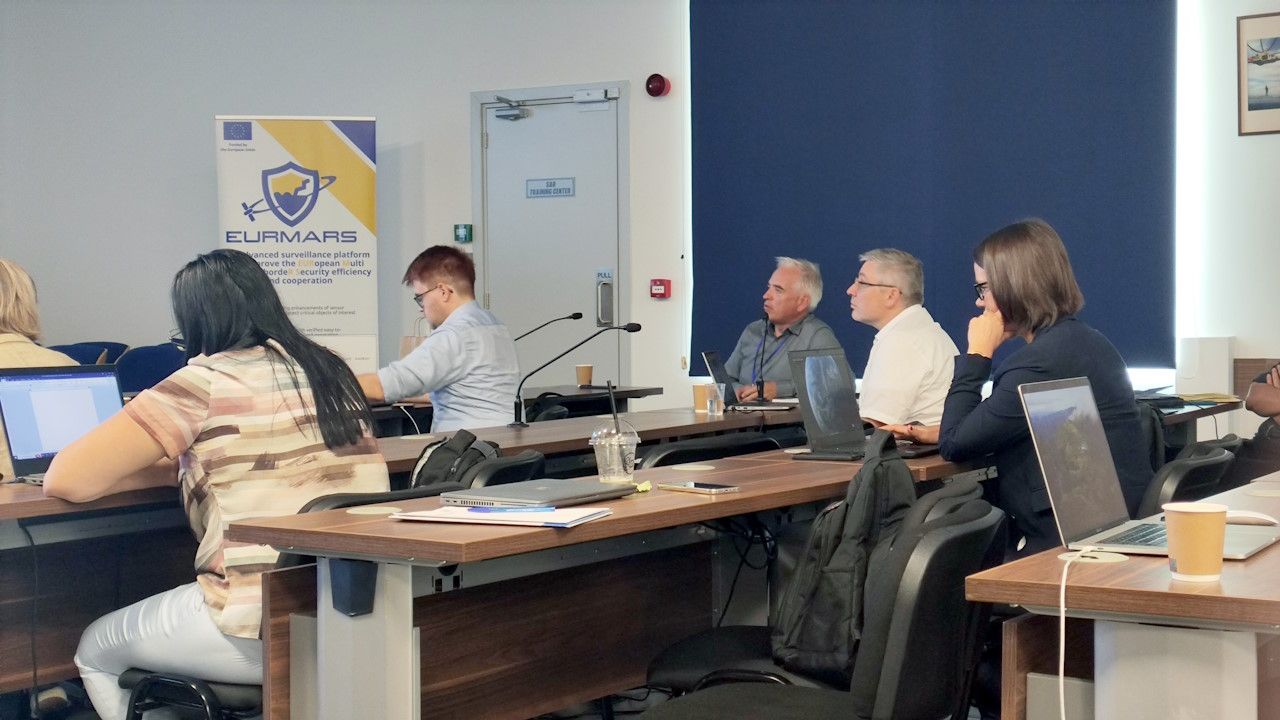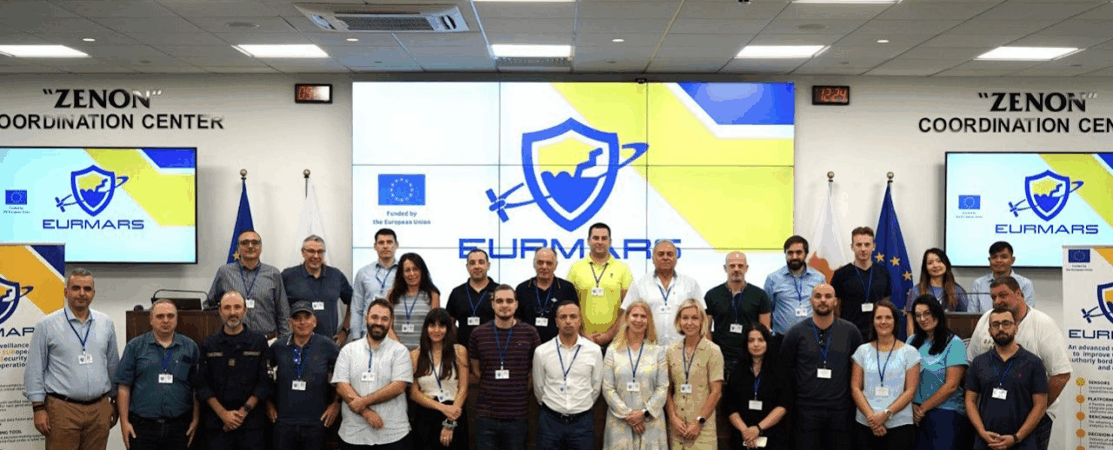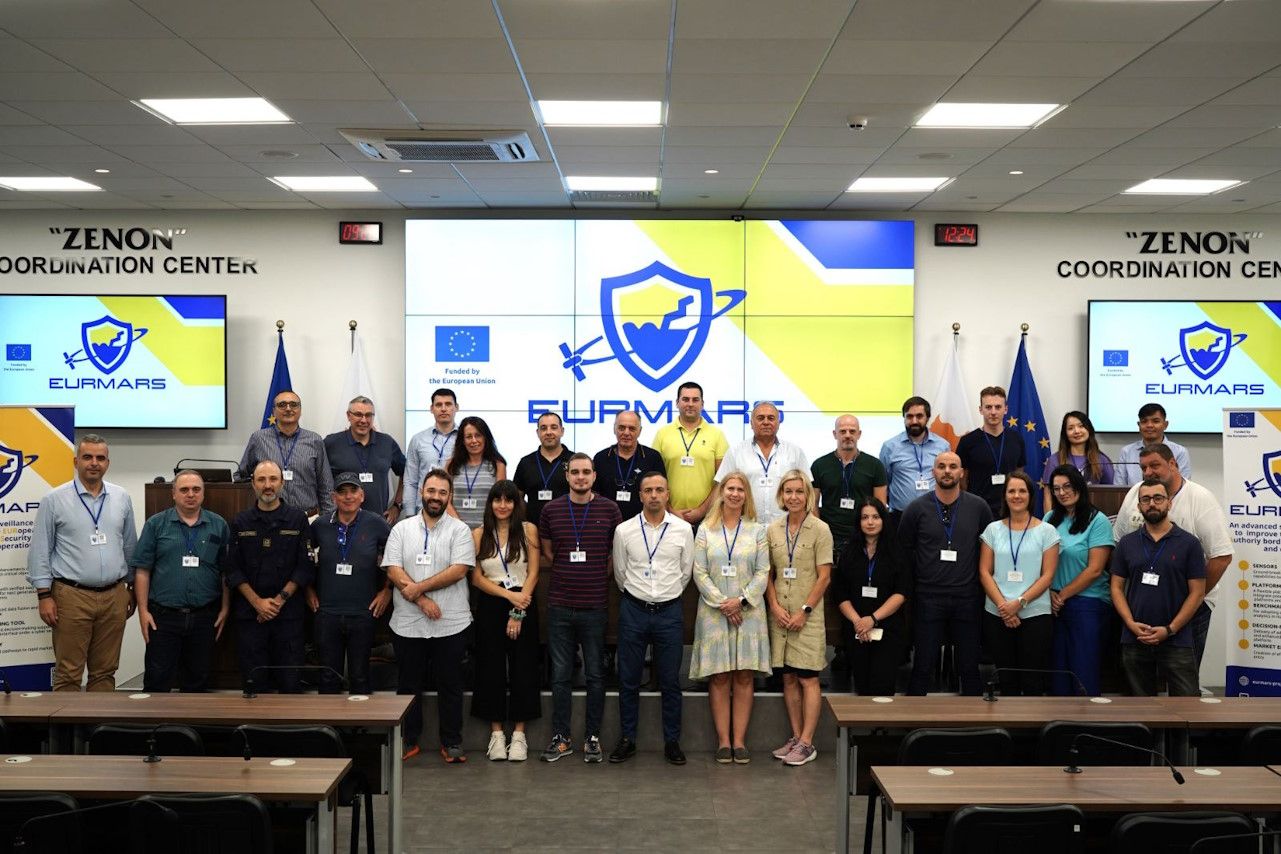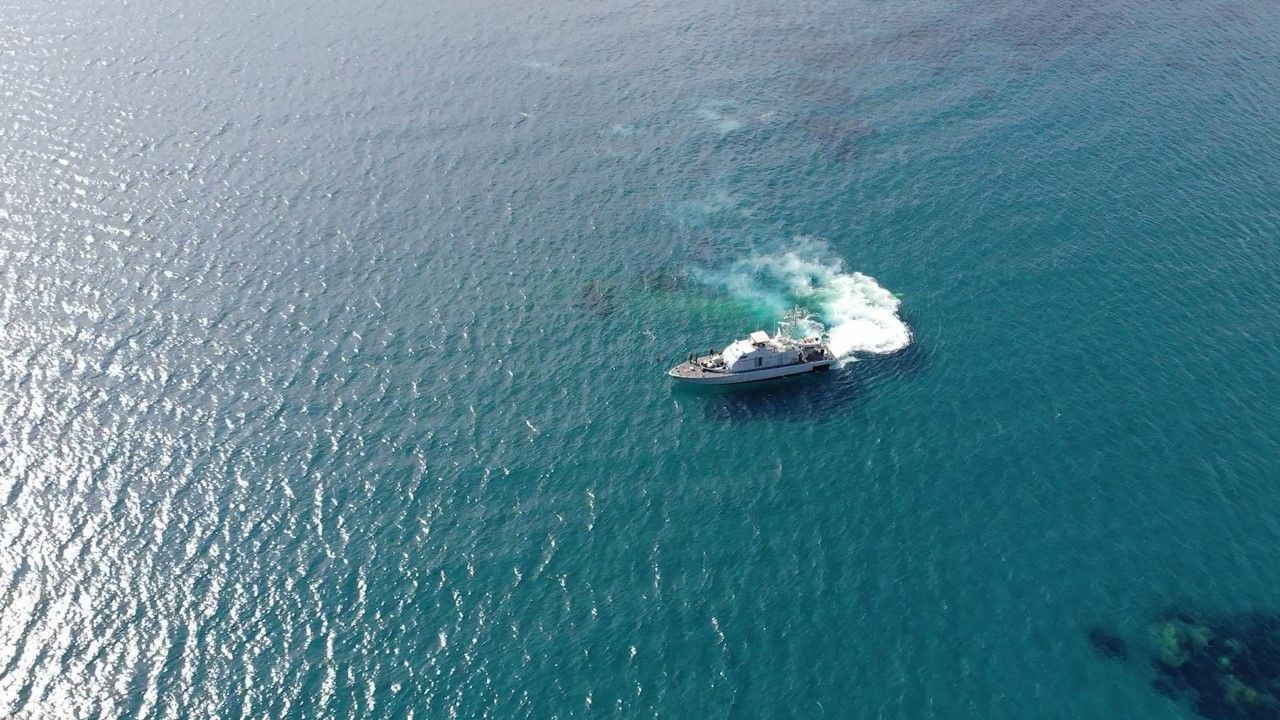The EURMARS Project proudly participated in the Security Research Event (SRE) 2025, held in Warsaw, Poland, showcasing our innovative work in advanced, multi-authority border surveillance.
Day 1 of the event featured our exhibition booth, where the EURMARS team engaged with researchers, end users and security professionals from across Europe. Visitors had the opportunity to explore how the EURMARS platform integrates:
- High-altitude platforms
- Satellite imagery
- UAVs (Unmanned Vehicles)
- AI-powered risk analysis
These technologies work together to address the evolving and complex challenges facing maritime border security in the EU.
Day 2 included a dedicated live presentation of the project, offering attendees an in-depth look at EURMARS’s objectives, technical capabilities and real-world applications. The session covered key project facts, outlined the main challenges and motivations behind the work and featured impactful video material demonstrating the EURMARS platform in action.
A sincere thank you to all participants who attended the presentation, visited the booth and contributed to valuable discussions throughout the event. Your engagement and feedback are vital to the success and continued growth of EURMARS.
